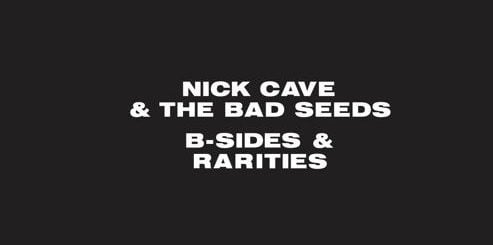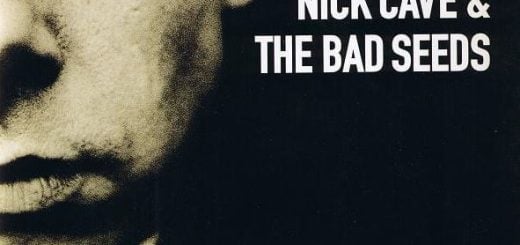O Children by Nick Cave & The Bad Seeds Lyrics Meaning – Unraveling the Poignant Message in Melody
- Music Video
- Lyrics
-
Song Meaning
- A Eulogy for Innocence: Understanding The Depth of ‘O Children’
- The Train Metaphor: An Escape or an Onward Journey?
- Forgive Us Now For What We’ve Done: The Burden Of Generational Sins
- The Legacy of War and Decay: Unearthing the Hidden Meaning
- Resonant Verses: The Song’s Most Memorable Lines Illuminated
Lyrics
My dear, my darling one
The cleaners are coming, one by one
You don’t even want to let them start
They’re knocking now upon your door
They measure the room, they know the score
They’re mopping up the butcher’s floor
Of your broken little hearts
(Oh, children)
Forgive us now for what we’ve done
It started out as a bit of fun
Here, take these before we run away
The keys to the gulag
(Oh, children)
(Lift up your voice, lift up your voice)
(Children)
(Rejoice, rejoice)
Come on
Come on
Come on
Come on
Here comes Frank and poor old Jim
They’re gathering round with all my friends
We’re older now, and the light is dim
And you are only just beginning
Oh, children
We have the answer to all your fears
It’s short, it’s simple, it’s crystal-clear
It’s roundabout and it’s somewhere here
Lost amongst our winnings
(Oh, children)
(Lift up your voice, lift up your voice)
(Children)
(Rejoice, rejoice)
The cleaners have done their job on you
They’re hip to it, man, they’re in the groove
They’ve hosed you down, you’re good as new
And they’re lining up to inspect you
Oh children
Poor old Jim’s white as a ghost
He’s found the answer that we lost
We’re all weeping now, weeping because
There ain’t nothing we can do to protect you
(Oh, children)
(Lift up your voice, lift up your voice)
(Children)
(Rejoice, rejoice)
(Hey little train, we’re jumping on)
(The train that goes to the Kingdom)
We’re happy, Ma, we’re having fun
And the train ain’t even left the station
(Hey, little train, wait for me)
(I once was blind but now I see)
And have you left a seat for me?
Is that such a stretch of the imagination?
(Hey little train, wait for me)
(I was held in chains but now I’m free)
I’m hanging in there, don’t you see?
In this process of elimination
(Hey little train, we’re jumping on)
(The train that goes to the Kingdom)
We’re happy, Ma, we’re having fun (children)
It’s beyond my wildest expectation (oh, children)
(Hey little train, we’re jumping on)
(The train that goes to the Kingdom)
We’re happy, Ma, we’re having fun
The train ain’t even left the station (oh, children)
(Hey, little train, wait for me)
(I once was blind but now I see)
In the pantheon of modern songwriting, few artists strike the chords of the human heart quite like Nick Cave & The Bad Seeds. ‘O Children’ is not merely a song; it’s a resonant narrative wrapped in melody, a hauntingly vivid brushstroke across the canvas of music. Cave, with his inimitable voice, delivers a sorrowful yet ultimately uplifting sermon—cloaked in the finery of poetic ambiguity and rich symbolism.
To dissect ‘O Children’ is to journey through the shadowy corridors of regret, past the fickleness of youth, into the liberating yet somber reflections on life’s inevitable ebb and flow. Cave’s ballad becomes a shared prayer; a request for absolution that transcends the personal, reaching out into collective salvation.
A Eulogy for Innocence: Understanding The Depth of ‘O Children’
The title itself, ‘O Children’, is a dirge-like invocation—a supplication or perhaps a belated apology directed at the younger generation bearing the brunt of the preceding generation’s misadventures. Cave’s repeated refrain is an acknowledgment of an inheritance of broken worlds and promises, a recognition of the debts owed to youth.
With ‘The cleaners are coming, one by one,’ Cave conjures an image of an approaching reckoning, as if past deeds cannot be undone but instead must be faced and reckoned with. A moral ‘clean-up’ is inevitable, and the older generation appears resigned to its fate, yet desperate to shield the children from the fallout.
The Train Metaphor: An Escape or an Onward Journey?
In the latter half of ‘O Children’, Cave transforms optimism into an almost tangible character with the ‘little train’ bound for ‘the Kingdom’. This recurring theme of trains in his work often symbolizes transition and passage—whether towards death, freedom, or enlightenment.
Cave’s train is a beacon of liberation from a past shrouded in darkness towards an unforeseen but hopefully brighter destination. ‘We’re happy, Ma, we’re having fun’ suggests a reconciliation with the past and a childish glee in the face of the unknown, while ‘I once was blind but now I see’ echoes sentiments of personal growth and revelation.
Forgive Us Now For What We’ve Done: The Burden Of Generational Sins
Cave does not shy away from invoking biblical themes of forgiveness and sin. The phrase ‘Forgive us now for what we’ve done’ serves as a cry for atonement from an elder to the offspring, acknowledging that the scars of yesterday’s transgressions are borne by today’s youth.
This confession is a plea for understanding and compassion amid the seemingly playful tones of ‘it started out as a bit of fun.’ Herein lies the tragicomedy of life’s intentions gone awry and the burden of impacts unintended but impossible to reverse.
The Legacy of War and Decay: Unearthing the Hidden Meaning
Listening closely, ‘O Children’ is a deep reflection on the aftereffects of conflict and the societal decay it leaves in its wake. ‘The keys to the gulag’ and ‘we’re mopping up the butcher’s floor of your broken little hearts’ evoke powerful images of historical atrocities, implying that the next generation inherits the prisons of the past. Cave taps into post-war imagery to highlight the continuity of suffering and the struggle for redemption.
Within this solemn acknowledgment, Cave’s poetry arguably seeks to bridge the gap between error and understanding, thereby underscoring the universal need for forgiving the unforgivable as a path to healing and forward movement.
Resonant Verses: The Song’s Most Memorable Lines Illuminated
‘We have the answer to all your fears / It’s short, it’s simple, it’s crystal clear’ proclaims a biting irony when juxtaposed with the complex layers of human experience and sorrow Cave communes throughout the song. These lines are an idyllic statement of reassurance amidst the chaos of life, a chant to inspire hope when answers seem as elusive as ever.
Meanwhile, ‘Lost amongst our winnings’ is a bittersweet admittance, encapsulating life’s oxymoronic nature—victories can sometimes be as disorienting and hollow as defeats. Cave masterfully represents the irony of finding oneself adrift at the very moment of triumph, highlighting the transient nature of human contentment.








